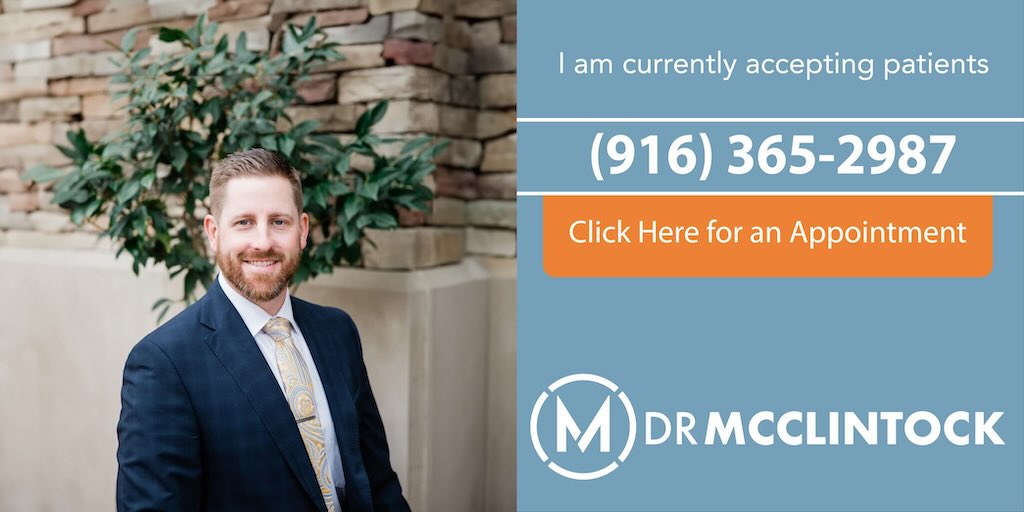Each year, thousands of surgeries are performed on patients who don’t have health insurance.
Sometimes patients will pay for the costs out-of-pocket, and other times they will use a sharing program. Here are some ways to make surgery possible without health insurance.
Self-Pay
Many patients are finding that paying for their surgery out of pocket is worth the large expense because of how the surgery transforms their quality of life. The best option may be to start with the money in your Health Savings Account. Since typically, people do not have enough in their HSA to cover the entire expense of the surgery, some use their personal savings to make up the difference.
Others are finding they can take money from their 401k of 403b to pay for their surgery without a penalty. Keep in mind that these plans differ between employers. Some employers will allow you to withdraw up to 50% of your vested balance and up to $50,000 for healthcare expenses.
If you have a Roth IRA, you typically need to contact your fund’s customer service to find out about withdrawing money before retirement.
Other options are to take out a home equity loan or even an unsecured loan as a last resort. Unsecured loans such as credit cards will have the highest rates.
Be sure to contact our office to discuss payment plan options for self-pay.
Health Sharing Programs
Medical cost-sharing ministries differ in many ways from health insurance and should be considered a different type of organization altogether.
While sharing ministries don’t guarantee payment absolutely, they are set up as a group of people who band together to bear one another’s unexpected medical burdens. All of the programs are somewhat discounted compared to typical insurance, and the coverage can vary significantly.
All of the ministries cover surgery, but they also exclude some pre-existing conditions. If you are facing surgery, it may not be possible to sign up for one of these plans in order to get the surgery covered. However, these plans can be considered for future surgeries.
All of the sharing ministries are federally certified exemptions to the individual mandate under the U.S. Affordable Care Act. Note that your monthly contribution to the organization is not tax-deductible.
Here is an overview of some of the most popular organizations.
Christian Healthcare Ministries
Christian Healthcare Ministries is the largest and longest-running health cost-sharing ministry and has been around for 40 years. They provide a health cost solution for members in all 50 states and have shared $5 billion in members’ medical bills. They allow members to use any doctor instead of requiring you to choose from a list.
One thing to note is that Christian Healthcare Ministries does not negotiate payments for you as some ministries do. Your monthly contributions are sent directly to CHM and not to other members.
The three tiers of service are priced at $78, $118, and $172 per unit per month. A unit represents a household member where no household will pay for more than three units, no matter how many members are in the household.
CHM will pay 100% of eligible medical expenses after you’ve paid the amount stated in the program you’ve chosen. Their website clearly lists eligible expenses covered under all three tiers. Note that surgery is covered under all the plans.
You can also add on an additional program called “Brother’s Keeper” for $40 more per month, and that covers catastrophic medical bills exceeding $125,000.
There are no restrictions based on age, weight, geographic location, or health history, but they do state that their members need to be believers in the Christian faith.
Medi-Share
This ministry has the best overall customer rating. There are a couple of advantages that sets Medi-Share apart from other ministries.
First, they work to negotiate discounts and facilitate direct payment of medical bills to providers using member shares.
Secondly, members have unlimited access to free virtual doctor visits through their telehealth program. However, when you want to see an in-person provider, you will have to choose someone in the Medi-Share network.
Whereas some of the other ministries don’t cover doctor visits, Medi-Share covers the visits within their network for a $35 provider fee. ER visits are covered after you pay $135-$200.
It’s important to note these fees do not count towards your Annual Household Portion or AHP. Routine well visits and preventative care are not shared costs.
Your medical bills are eligible for sharing at 100% after your expenses exceed the AHP based on the plan you’ve chosen. The excluded amount ranges from $3,000 to $12,000.
When it comes to surgery, any of these options will provide some assistance.
Note that once you meet your AHP, all eligible bills will be processed for sharing for the entire household, not per person or event.
Medicare offers four tiers of coverage ranging from $143 to $333 for a household of one, and $339 to $864 for a household with three or more members.
Surgery is covered under all four membership tiers, though pre-existing conditions may be excluded.
Medi-Share also offers dental, vision, and prescription discounts.
You need to be an active church attender and agree not to vape to join this health-sharing ministry. You can get up to 20% off your monthly share amount if you meet their health incentive requirements.
Samaritan Ministries
Samaritan Ministries’ niche is that they have the most personal feel of all the ministries. If you’re looking for a ministry where you send your money directly to other members in need instead of to the organization to distribute, then you’ll enjoy Samaritan Ministries.
Some members make a point of praying for the families they are sending the money to and appreciate the community feel.
Sending other members money each month could be time-consuming, so Samaritan Ministries offers an app to streamline the process.
Samaritan Ministries offers five programs to choose from. Their program called “Samaritan Given” offers three tiers of coverage, and they also offer Samaritan Classic and Basic.
Samaritan Given members share medical expenses that begin during membership and are symptom-related.
Sharing begins once your eligible medical expenses have exceeded your Annual Unshareable Amount (AUA). After that, you pay a co-share percentage of each bill until reaching the maximum co-share amount. The co-share and AUAs are determined by the program settings you choose.
Routine care (dental, vision, yearly wellness checks, colonoscopies, etc.) is generally not shared by Samaritan members.
Medical conditions that exist prior to membership are generally not eligible for sharing. Samaritan Given shares new qualifying bills for conditions that have been treatment-free for at least 24 consecutive months while an active member.
There are no network restrictions. Choose the doctor, hospital, and pharmacy that works best for you.
Monthly contributions range from $75 to $135 for one member and $195 to $325 for a household of 3 or more. With the least expensive option, you would pay the first $5K of your expenses, and then they would be covered at 80%.
In the second tier, you would pay the first $2k and then have your expenses covered at 85%.
And for the most expensive plan, you pay the first $1K, and your eligible expenses are covered at 90% after that, with a maximum expense to you of $3,500.
With the Samaritan Classic plan, you have a $400 unsharable amount, and then you get help with 100% of eligible expenses. Monthly contributions begin at $227 for one member and go up to $530 for three or more.
Keep in mind that with Samaritan Ministries, you are responsible for negotiating with medical providers directly.
Liberty Share
This organization offers the most comprehensive coverage. All members share eligible medical costs up to $1,000,000 per incident. The annual unshared amount is $1,000 for individuals, $1,750 for couples and $2,250 for families.
With Liberty Share, you can choose your doctor and hospital.
Their four program options range from $199 to $399 for a single person and $399 to $675 for a family of 3 or more.
Telehealth visits are available through Liberty Share App and cost $40 for primary care and $100 for specialty care until your Annual Unshared Amount is met. They offer a discount program for medications.
Your monthly share amount automatically transfers to the online account of another member with eligible medical bills in a transparent way. You see where your money goes, so you can pray for and encourage the members you help.
Liberty Share has a unique program called the Liberty HealthTrac that’s designed to help guide members who need assistance to live a healthier lifestyle. This is offered as a provisional membership for those who have conditions that are particularly responsive to lifestyle changes. Rather than denying membership to those who may not initially meet their qualifications, Liberty HealthShare offers additional support to the applicants. This allows provisional members to enjoy being a part of a health-sharing community while working to achieve their health coaching goals.
This may be a good option for those not eligible for other sharing ministries as Liberty Share is the only ministry that offers this type of program.
The HealthTrac program may be offered to applicants in need of support for smoking cessation, weight loss, or other conditions that have been shown to benefit from lifestyle modifications such as diabetes, hypertension, heart disease, and high cholesterol.
Liberty HealthShare partners with a health savings program called SavNet to help members save on some services not eligible for sharing – including dental, vision, hearing, chiropractic, and more.
Once you’ve met your Annual Unshared Amount, the following types of medical expenses are shareable through Liberty HealthShare: Conventional or naturopathic physician visits, wellness, and screening appointments, clinic visits, urgent care/emergency room visits, hospital care (inpatient or outpatient), physical therapy, speech therapy, occupational and respiratory therapy, home health care, medical testing, X-rays, ambulance transport, vaccinations, prenatal and maternity care (Program dependent).
Under your Liberty HealthShare program, you may not share pre-existing conditions during the first year of membership, tier 1–3 prescriptions, dental/vision expenses, expenses other than accidents, acute illness, or injury within the first 60 days membership.
Sedera
If you’re looking for a non-faith-based organization, Sedera may be a good fit. You do not have to practice a faith, but they do want you to agree to abide by their Principles of Membership which include: abstaining from the use of illegal substances, a commitment to practice good health and lifestyle measures, and agreeing to understand that Sedera is a benevolence organization and that they don’t guarantee payment of medical expenses.
Sedera does not use a network, so you are free to choose any provider. They also offer 24/7 telemedicine.
Sedera offers five tiers of coverage with Initial Unsharable Amounts ranging from $2500 for the cheapest program to $500 for the most expensive plan.
For a single member, the program cost ranges from $113 up to $174 for the youngest age bracket. For a family, the price starts at $300 and goes up to $574.
For individuals over 29 or for families whose oldest member is over 29, the price increases.
Unlike many of the other ministries, Sedera accepts members who are tobacco users, but they pay an additional $75 per month for each member using tobacco.
My office will be happy to answer any questions you may have. Please don’t hesitate to ask if you have any questions.





